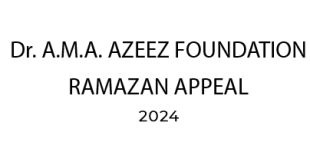
The month of Ramadan is upon Muslims once more. A month described in Islamic literature as better than a thousand months, when Satan is locked in shackles and the doors of Heaven are wide open – for those who wish to enter.
The Holy Qur’an lays down the main purpose of the month of fasting – to develop righteousness. It’s not easy to become a righteous person and so Ramadan is a period when good deeds are made easy and heavenly blessings are made accessible. Moreover, certain qualities which contribute to a person’s righteousness are developed.
Discipline
Islam means complete submission to the Will of God which in turn leads to peace. Complete submission however cannot be attained without discipline and obedience.
In this month, Muslims are commanded to forgo food, wake up early, refrain from immoral talk or behavior and strive for betterment and increase in good deeds. This requires discipline which is brought about by forcing one’s self to rise early in the morning (or in the latter part of the night), sacrificing the comfort of the bed and offer prayer. Discipline isn’t something that can be developed over a day or even a week which is why Muslims are instructed to fast for an entire month.
Cleanliness & Clarity
Muslims are taught to perform ablution before each prayer and be in a state of cleanliness as much as possible for outward cleanliness leads to inner cleanliness. This is why the Holy Prophet is reported to have said cleanliness is half of faith. The Qur’an similarly says:
‘Verily, he truly prospers who purifies himself’. (Ch.87:V.15)
Fasting is proven to cleanse the body of toxins and by forgoing food for a time, the body is assisted in repairing cells and utilizing energy in other areas. The body also burns fat to provide energy which leads to weight loss.
The NHS says ‘after a few days of the fast, higher levels of endorphins appear in the blood, making you more alert and giving an overall feeling of general mental wellbeing.’ Certainly, since food heavily affects the brain and our emotions, fasting helps in clearing out impurities and this detoxification results in an overall sense of wellbeing. That is if it’s done right though – by keeping to a balanced diet in the days of Ramadan.
Self-control
The Holy Qur’an says:
‘And those who suppress anger and pardon men; and Allah loves those who do good’ (Ch.3:V.135).
Man is tempted and swayed by many different distractions, people, responsibilities, thoughts and emotions among other things in his life which can make it difficult to control his actions. Many people try ever so hard to give up certain foods, habits or degenerative practices yet they fail time and again. Ramadan and fasting helps foster a sense of self-control and alertness which makes it easy for people to give up their bad habits during this month.
By giving up something lawful and essential to human survival, man strengthens his resolve and is enabled to have greater self control over his actions.
Spirituality
We learn from the accounts of saints and holy men of the past that fasting promotes and enhances a person’s spirituality. Those endowed with the ability are able to experience visions and other spiritual phenomena which others cannot. This is why Prophets and other holy men have gone into seclusion for a time and lived on the bare essentials to develop their spiritual powers. Ramadan for Muslims is the same kind of spiritual training designed to heighten the spiritual senses. This is further enhanced by the focus on the recitation and understanding of the Holy Quran – the revelation of which began during this blessed month to the Prophet Muhammad (peace and blessings of Allah be upon him) and was completed over a period of 23 years.
Humility
‘Verily, those who believe and do good works, and humble themselves before their Lord — these are the inmates of Heaven; therein shall they abide.’ (Ch.11:V.24)
Muslims are commanded to give themselves up to God and humbly submit to His will, neither being ungrateful with what He gives nor rebelling against His commands. The reason being that we are but mere beggars and servants in the presence of the Creator and King of the universe.
‘O ye men, you are mere beggars unto Allah, while Allah is He Who stands in need of none, Ever Praiseworthy’ (Ch.35:V.16)
Fasting in Ramadan reminds Muslims that we are all entirely dependent on God and look only to Him for sustenance and provisions since He is the Best of Providers. This increases one’s humility and lowliness as well as trust in God thus helping man to attain nearness to God.
Self annihilation
Sufis, saints and those conversant with spiritual and religious matters have always spoken about something called ‘self annihilation’ or ‘fana’. This means to completely discard your desires, passions, hopes and ambitions and remove all thoughts of the self in the way of God. Once man has purified himself thus, he arrives at the stage of freedom from grief or fear and continues his progress on the path to God.
‘Behold! the friends of Allah shall certainly have no fear, nor shall they grieve’ (Ch.10:v.63)
Fasting and sacrifice are means to attain the stage of self annihilation so that rather than being driven by our own selfish, conceited desires and motives, we fully conform to the Will of God and act as He wishes us to, eat when He wants us to and sleep and awake when He commands us to. When a man does this and his motives are not tainted by greed or worldliness, he attains a level of nearness to God and continues his advance. This is the path saints and sufis have spoken of.
Empathy
‘And they feed, for love of Him, the poor, the orphan, and the prisoner.’ (Ch.76:V.9)
There’s little doubt that one cannot fully understand a phenomenon unless and until he has experienced it for himself. So in order for Muslims to understand and feel the privation, difficulties and pain of others among them in society, fasting has been ordained to develop empathy for our fellow beings.
This in turn leads to an increase in charitable efforts and raising the downtrodden rather than looking down on them as some well-off people in our time do.
Therefore, fasting is an exceptionally important part of the Islamic faith and has many more benefits which can only be perceived by one who diligently fasts with sincerity this Ramadan.
Source: http://www.huffingtonpost.com
 Sri lanka Muslims Web Portal Diversity and Inclusiveness
Sri lanka Muslims Web Portal Diversity and Inclusiveness



